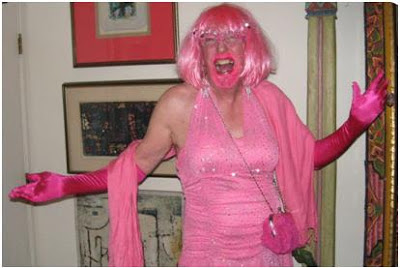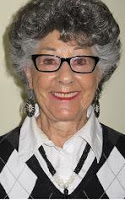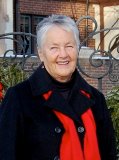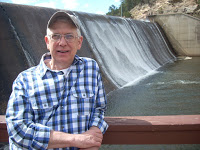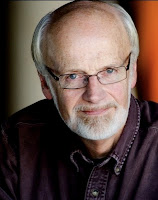I expect that anyone alive today over the age of two will have at least one memory of a holiday. Those of us who are fond of saying that “we were not born yesterday,” will have many ghostly memories of holidays past; some good and perhaps some not so good. So it is with me.
One of my happiest holidays from “days of yore” is the Christmas of 1954, while my family was living in our new house in Redondo Beach, California. My parents were still married then. (I know it was a happy holiday because I have seen the photographs of that Christmas. Photos often are more accurate than ancient memories or at least can trigger the return of memories with their associated feelings of happiness.) 1954 was the year I received as gifts: a used, but fully functional, Lionel electric train set; a Davy Crockett wristwatch: and a “Jungle Jim” toy rifle.
 |
| My Favorite Watch of All Time |
In the photographs I can be seen wielding the rifle over my head (one handed) while wearing a big smile and striped pajamas. Another photo shows me wearing the watch, sitting on the floor getting dizzy while watching my train go around in circles on the few available tracks. I was blowing the whistle and occasionally placing smoke pellets into the “smoke stack.”
The next most memorable Christmas occurred in 1966. I had graduated from high school in June and started college at Sacramento State College. I would drive home every weekend. (This was the year I learned there was a better life without constant snow on the ground in the winter.) I purchased my family’s gifts at Sears in Sacramento. I haven’t remembered what I got my mother but I bought my half-brother and sister (twins) among other things a “Green Ghost” game. (Did you notice how I cleverly worked a real “ghost” into the title and story?) The Green Ghost game has a glow-in-the-dark board resting on legs to raise it above the tabletop and is played in the dark (hence the glow-in-the-dark part).
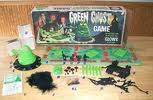 |
| It was fun to play. |
I do not know if my siblings enjoyed the game being only 8-years old at the time, but the novelty combination of darkness, glowing game board, secret passages, and the word “ghost” certainly attracted me, which is why I thought they would enjoy it. However, the memorable event for this particular Christmas is the saga of the present I bought for my stepfather, Paul.
In all of my adolescent and teenage years, I could never think of a decent gift to give him. Ties and socks just did not feel right. In 1966, I found what I knew was the perfect gift for Paul to wear while working outside in the winter (he delivered propane to businesses and homes). After much searching and indecision, I bought for him a pair of red, quilted, long underwear bottoms (the very last pair and in just his size with no matching top available). After waiting in line for 30-minutes to access the gift wrap department and submit my gift to the wrappers (not to be confused with “rappers” who had not yet been invented), I waited another 45-minutes to pick up the now wrapped gift. I noticed they wrapped the underwear in what looked like a shoebox, when I thought it would be in a flatter shirt type box. Soooooo, I naively and happily cradled the package and drove home for Christmas vacation.
Christmas Eve arrived in due course and the presents were distributed slowly to waiting family members. The twins were anxious to open the big box labeled for them and in which they soon discovered the Green Ghost game. Paul was opening my gift to him while I was opening one for me. I remained confident that he was really going to enjoy his gift. Alas, it was not to be as I planned. (Do you remember the Murphy’s Law which states, “If something can go wrong, it will, and at the worst possible time.”) While paying no attention to Paul, I was busily unwrapping my gift, when I heard him say, “Well thank you, Rick?” with a noticeable questioning inflection. I put a smile on my face and turned around to accept his gratitude and expression of love. My smile turned into a puzzled and confused look, which actually mirrored the look on Paul’s face. For there he was holding out for all to see a pair of pink lady’s slippers. We were all slightly amused as I explained what obviously had happened at the Sears gift wrapping department, but then we all broke out in laughter when I said, “What do you suppose somebody’s mother thought when her loving husband or adoring children gave her a pair of bright red men’s long underwear bottoms.”
Christmas of 1972 was an important holiday. I lived in relative poverty as a deputy sheriff in Tucson (Arizona, just in case there is another Tucson somewhere). My soon to be fiancé, Deborah, surprised me with a Christmas visit. I have a photo of us sitting around the kitchen table in my apartment with a scrawny, pitiful-looking, 9-inch “tree” with crude decorations on it, and Deborah is wearing a Santa hat. The atmosphere or environment of that Christmas was not fancy, but it held much love and togetherness.
I have learned that many times in life, it is not the bright, shiny, and noisy moments (or memories) which carry the most important messages, but more often than not, it is the plain and precious moments that convey the most love and affection and deserve to be remembered.
About the Author
 |
| Emerald Bay, Lake Tahoe, CA |
Ricky was born in June of 1948 in downtown Los Angeles, California. He lived first in Lawndale and then in Redondo Beach both suburbs of LA. Just prior to turning 8 years old, he went to live with his grandparents on their farm in Isanti County, Minnesota for two years while (unknown to him) his parents obtained a divorce.
When united with his mother and new stepfather, he lived at Emerald Bay and then at South Lake Tahoe, California, graduating from South Tahoe High School in 1966. After two tours of duty with the Air Force, he moved to Denver, Colorado where he lived with his wife of 27 years and their four children. His wife passed away from complications of breast cancer four days after 9-11.
He came out as a gay man in the summer of 2010. “I find writing these memories to be very therapeutic.”
Ricky’s story blog is TheTahoeBoy.blogspot.com.

